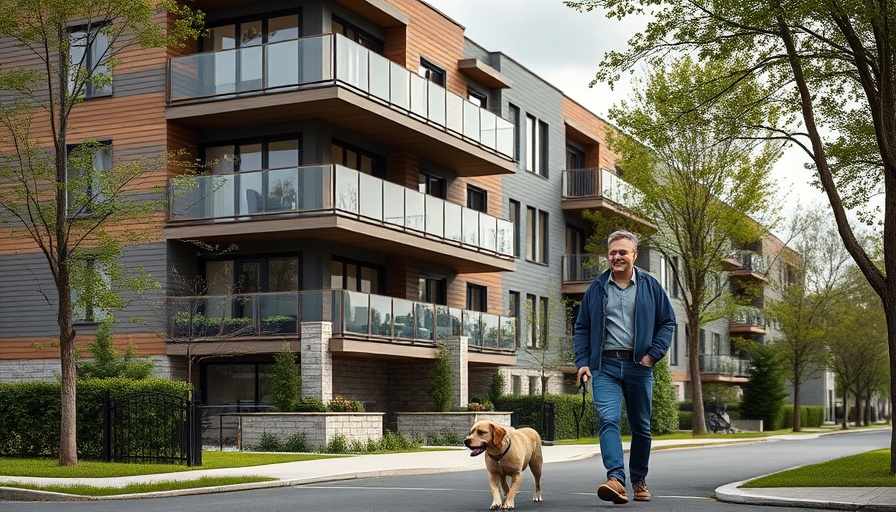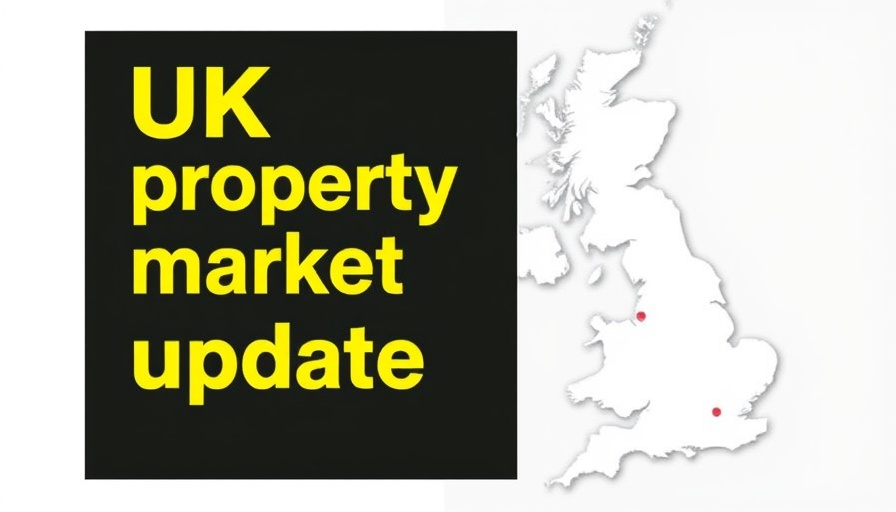
Transforming Victorian Charm into Sustainable Homes
In the heart of Nunhead, South London, a £4 million funding initiative by Paragon Bank is set to redefine what it means to live sustainably. The ambitious project seeks to transform a Victorian villa at 41 Linden Grove into a gleaming example of modern Passivhaus residential design. This project not only champions energy efficiency through its nine-unit development but also mirrors a rising trend in the real estate market focused on sustainability and eco-friendly living.
A Strategic Move Towards Sustainable Housing
The significance of Passivhaus standards cannot be overstated. These construction criteria point towards a future where energy consumption is significantly reduced, ultimately leading to lower utility bills and a lighter ecological footprint. Features such as triple-glazed windows, advanced insulation, heat pumps, and systems for mechanical ventilation with heat recovery (MVHR) make these homes a smart choice for future occupants. The anticipated Energy Performance Certificate (EPC) rating of A for these flats aligns with Paragon's Green Homes Initiative, which incentivizes housebuilders to adopt sustainable practices.
Underscoring Financial Feasibility and Strategic Partnerships
This funding arrangement is more than a financial transaction; it represents a strategic partnership aimed at promoting sustainability in housing. As Steve Mountain, Senior Relationship Director at Paragon Bank, highlighted, the developer's commitment to Passivhaus standards is a pivotal aspect of this collaboration. Paragon Bank's industry-leading Green Homes Initiative not only supports developers but ultimately benefits property investors looking for environmentally-conscious investment opportunities. Every element of this partnership illustrates a significant shift in how financial institutions recognize and reward sustainable housing endeavors.
Addressing Housing Demand in South London
Nunhead has been identified as a vibrant and desirable neighborhood, elevating its real estate potential. The upcoming apartments will range from one to three bedrooms, catering to various buyer needs and family structures. In an era where urban living is evolving, these high-quality, energy-efficient homes will likely attract a diverse group of buyers — from young professionals to families keen on eco-friendly living.
Future Predictions: The Broader Implications for the Housing Market
As conversations around climate change become more pressing, the housing market must adapt. This project is a glimpse into a future where sustainable housing becomes mainstream. Analysts predict that developments like those at 41 Linden Grove will encourage more developers to pursue energy-efficient building standards, spurred by financial supporters recognizing the long-term value in sustainability. This shift will not only change the way homes are built but will also reshape buyer expectations and priorities in the housing market.
Conclusion: Why This Matters to Investors and Owners
For property owners and investors, understanding the implications of such funding and development choices can be crucial. Investing in sustainable housing is not merely an ethical decision; it also presents a solid business opportunity as demand for eco-friendly homes rises. The early progress in Nunhead exemplifies how the integration of advanced green technologies and financial backing can create unique, marketable homes that stand out in an increasingly competitive marketplace.
As we anticipate the official launch of these units, it becomes evident that those well-versed in the evolving narratives of sustainability and investment will have the upper hand in the UK property landscape. For those keen on entering this dynamic arena, staying informed about such pioneering projects is imperative.
 Add Row
Add Row  Add
Add 





Write A Comment